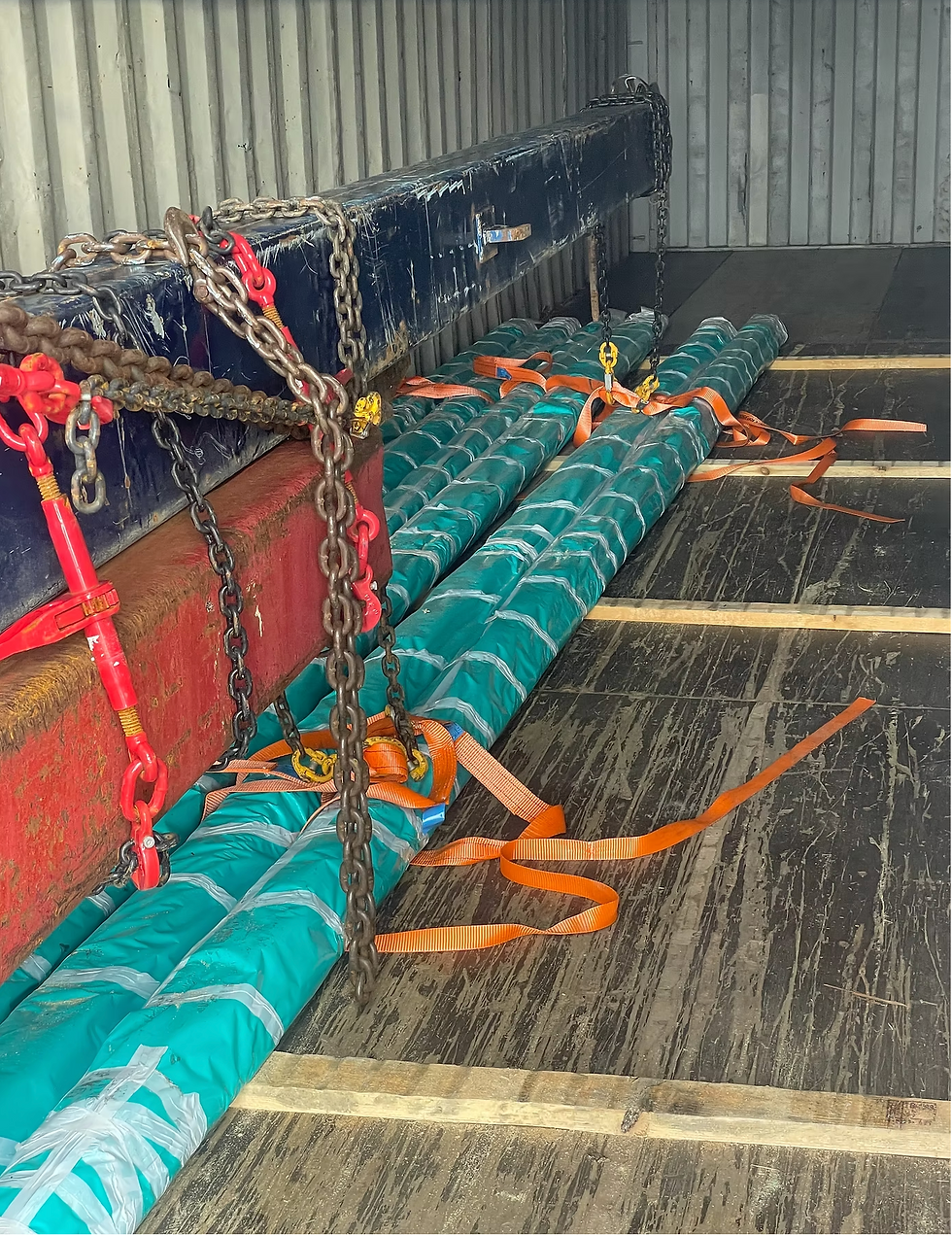Reliable Construction Material Delivery Across Canada
- Jean-Francois Bourque
- Nov 5, 2025
- 3 min read
When managing construction projects, one of the most critical factors for success is ensuring that materials arrive on time and in perfect condition. Delays or damages in material delivery can halt progress, increase costs, and frustrate all parties involved. This is why construction logistics services play a vital role in the Canadian construction industry. They streamline the supply chain, optimize transportation, and guarantee that everything needed for a project is where it should be, exactly when it should be there.
The Importance of Construction Logistics Services in Canada
Canada’s vast geography and diverse climate present unique challenges for transporting construction materials. From the bustling urban centers of Toronto and Vancouver to remote northern communities, logistics must be carefully planned and executed.
Construction logistics services help by:
Coordinating multiple suppliers and vendors
Managing transportation routes and schedules
Ensuring compliance with regional regulations
Handling special requirements for oversized or fragile materials
For example, a project in Northern Ontario might require materials to be delivered during a narrow seasonal window when roads are accessible. Logistics experts can plan shipments accordingly, avoiding costly delays.

Key Features of Effective Construction Logistics Services
To be reliable and efficient, construction logistics services must offer several key features:
1. Comprehensive Planning and Scheduling
Every construction project has a timeline, and materials must arrive in sync with the work schedule. Logistics providers use advanced software to plan deliveries, track shipments, and adjust routes in real time.
2. Specialized Transportation Equipment
Different materials require different handling. Heavy steel beams, delicate glass panels, and bulk aggregates all need specific transport solutions. Using the right equipment reduces damage and speeds up unloading.
3. Real-Time Tracking and Communication
Modern logistics services provide GPS tracking and constant communication with drivers and site managers. This transparency helps anticipate issues and keep everyone informed.
4. Regulatory Compliance and Safety
Transporting construction materials across provinces involves adhering to various regulations, including weight limits, permits, and safety standards. Experienced logistics providers ensure full compliance to avoid fines and delays.
5. Flexibility and Scalability
Construction projects can change scope or schedule unexpectedly. Reliable logistics services can quickly adapt, scaling up or down and rerouting shipments as needed.
How to Choose the Right Construction Logistics Partner
Selecting the right logistics partner is crucial for smooth project execution. Here are some practical tips:
Experience in Construction Sector: Look for providers with a proven track record in handling construction materials.
Nationwide Coverage: Ensure they can deliver across all Canadian provinces and territories.
Technology Integration: Choose companies that use modern tracking and management tools.
Customer Support: Responsive communication is essential for resolving issues quickly.
Safety Record: Verify their compliance with safety standards and accident history.
For instance, a company specializing in construction material delivery across Canada will have the expertise and resources to handle complex logistics challenges efficiently.

Best Practices for Managing Construction Material Delivery
To maximize the benefits of construction logistics services, project managers should adopt these best practices:
Early Coordination: Engage logistics providers during the project planning phase to align schedules.
Clear Documentation: Provide detailed information about materials, quantities, and delivery locations.
Regular Updates: Maintain open communication channels for status reports and issue resolution.
Contingency Planning: Prepare backup plans for weather disruptions or transportation delays.
On-Site Preparation: Ensure the delivery site is ready to receive materials, with proper access and equipment.
By following these steps, construction teams can reduce downtime and keep projects on track.
The Future of Construction Logistics in Canada
The construction industry is evolving, and so are logistics services. Innovations such as:
Automation and Robotics: Automated loading and unloading systems speed up handling.
Sustainable Transport: Electric and hybrid vehicles reduce environmental impact.
Data Analytics: Predictive analytics optimize routes and inventory management.
Drones and UAVs: Used for site surveys and small parcel deliveries in hard-to-reach areas.
These advancements will make construction logistics even more reliable and efficient, supporting Canada’s growing infrastructure needs.
Enhancing Project Success with Reliable Delivery
Reliable delivery of construction materials is more than just moving goods from point A to point B. It is a strategic component that impacts cost control, timeline adherence, and overall project quality. Partnering with expert construction logistics services ensures that materials arrive safely, on time, and ready to use.
Whether you are managing a small renovation or a large infrastructure project, investing in professional logistics support can save money, reduce stress, and improve outcomes.
By understanding the complexities of construction material delivery and leveraging specialized logistics services, Canadian construction projects can achieve greater efficiency and success. Reliable delivery is the backbone of every build, and with the right partner, your project will stand strong from foundation to finish.




Comments